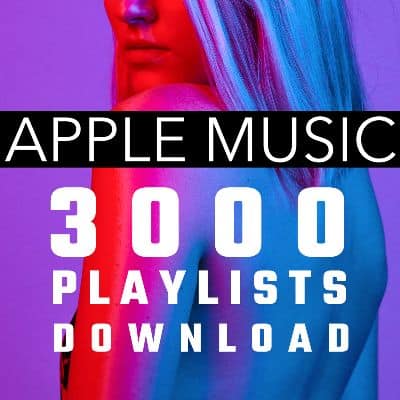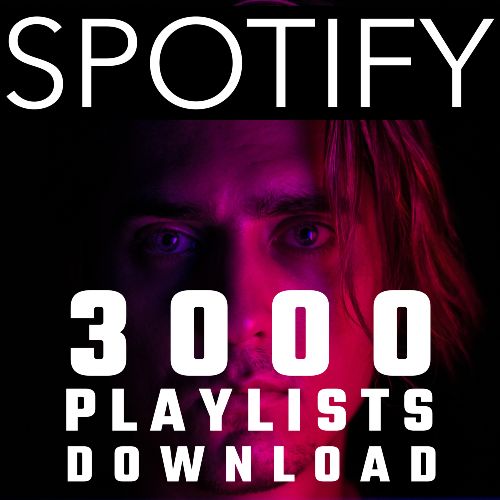[Product_Table id=’55274′ name=’allproducts’]
[sp_testimonial id=”53352″]
FEATURED POST FROM THE BEST BLOGGERS IN MUSIC: Don’t do it alone: Live music event roles
By Disc Makers’ Author Randy Chertkow and Jason Feehan
In part two of our DIY music business series, we focus on live music event roles. Learn how to leverage key services and expertise to help you delegate work so you can focus on creating and performing music.
As we wrote in “How to build a team of experts to support your DIY music career,” there’s a lot to managing a music career if you intend to make money with your music. Fortunately, do-it-yourself doesn’t mean do-it-alone. Plugging in and outsourcing to music services that handle different aspects of the industry is one way to get the help or expertise you may be lacking. In this post, we’ll tackle roles and services associated with live music events.
Live event music roles
There are services and sites that offer solutions and expertise that once only a music label could provide. You can leverage these services and resources to offload work you normally would have to do yourself — usually for a fee. In this multi-post series, we’re outlining all the major music business roles, the work each role performs, and why what they do is helpful for your music business. We also give you options to outsource the work or empower you to do it yourself.
While we’re currently still in the midst of the global COVID pandemic, which makes holding live in-person events difficult or impossible at the moment, many of these roles relate to virtual events as well. Plus, live music will come back, and you’ll want this info when it does.
These roles, and the tasks they tackle, are required to book, promote, and produce an event, whether that’s an in-person show, a virtual show, an album release party, a listening party, and more.
Booking Agent
Who:
The person who books the artist for a live or virtual event, schedules tours, and negotiates with venues.
Why:
To find and book events to keep the artist in the public eye, grow a fanbase, and generate revenue.
When:
You need a booker on your team if you play live at venues. Bookers create an artist’s booking kit and work with the venues to schedule shows, negotiate fees, and understand what the venue requires.
Hire:
You can hire a booking agent or identify a person in your circle to help you create your booking/press kit. Sites such as Upwork, Fiverr, and TaskRabbit can help you find someone to fill the role.
Service:
You can build a booking profile on your website or use services like SonicBids, ReverbNation, My PPK Power Press Kits, or Show Slinger. For booking, you can also use a service like My Afton, which books and produces real-world shows, national tours, and live stream/virtual concerts for independent artists. SonicBids and ReverbNation are also resources for finding ans booking gigs.
How to DIY:
Our book, Making Money With Music, covers lots of information about booking, including strategies and how to create booking kits. We also recommend Tour Smart by Martin Atkins, and How to Be Your Own Booking Agent by Jeri Goldstein.
Live Music Producer
Who:
The person who produces a live show, develops rehearsal strategies, and works with the artist and musicians to create special musical moments and help arrange songs for the stage.
Why:
To create a live show that resonates with the audience and keeps them coming back for more. While all your songs may sound different, often, from the stage, it all looks the same to an audience. A live music producer objectively assesses your stage show and teaches techniques aimed at engaging an audience and creating memorable moments that will boost engagement, word-of-mouth, future draw, and even merch sales in real-time. To learn more, check out our previous Disc Makers Blog post, “Work to create a killer live show.”
When:
You need a live music producer if you play live, especially before you hit the road for a tour.
Hire:
Live music producers are a specialty and, as a result, are consultants who are hired for a limited time. Engagements usually require multiple sessions, with each session being a flat fee or by the hour.
Service:
Given the specialty, services that can help are usually live music producers themselves, who you can book one-on-one. Notable producers like Tom Jackson also have books, videos, and workshops you can attend.
How to DIY:
To learn the craft of live music production, we recommend the book, Live Music Method by Tom Jackson as well as his educational videos, All Roads Lead To The Stage.
Live Music Promoter
Who:
The person who promotes, advertises, and grows a live music audience for shows.
Why:
While they often work for the venue, from a musicians perspective, the value a live music promoter brings is marketing the live event to pull in the biggest possible audience.
When:
To make any event, show, or tour successful, you need to market, promote, and publicize it ahead of time.
Hire:
Most live music promoters work for venues, but you can hire a promoter or publicist through networking or via sites such as Upwork, Fiverr, and TaskRabbit. You can also use these same services for finding marketing professionals who can create press releases and press kits.
Service:
Paid services like Story Amp can facilitate the distribution of press releases.
How to DIY:
To create a press kit, press release, or learn how to market, promote, and publicize your act and your music, check out our book, Making Money With Music. We also recommend Guerrilla Music Marketing by Bob Baker and Trust Me, I’m Lying: Confessions of a Media Manipulator by Ryan Holiday.
Live show production roles
While a live event is in progress, a number of roles and tasks need to be attended to before, during, and after the musicians are onstage. Some of these roles include:
Store Clerk
Who:
The person or people who sell (and promote) your merchandise to fans at shows and virtual performances.
Why:
When you’re performing, you can help promote, but you can’t sell your merch. Having someone you can trust to mind the store and be able to handle the transactions is vital to boost merch sales and increase revenue.
When:
Whenever you hold an event (listening party, album release party) or perform a show (whether in-person or virtual), you should have merch for sale and someone handling sales.
Hire:
Often, the store clerk is a trusted friend, fan, or family member who does it for free or in exchange for attending shows, etc. Since money is being exchanged, it’s critical to make sure you trust the individual.
Service:
There’s no service for handling live event merch sales since these are in-person, but for virtual shows, you’ll need to have your online store and sales/payment tools ready-to-go. If you want an actual storefront that can allow people to click, order, and pay you on their own, try creating a storefront on sites like Shopify or Gumroad.
How to DIY:
For live music events, a well-stocked, enticing merch table is your best bet for making merch sales. For virtual events, you can handle online order-taking and fulfillment/shipping yourself. An easy way to collect payments is through Paypal.ME or Venmo. For more information on selling merch during streaming concerts, see our Disc Makers article, “Maximizing Your Revenue When Streaming,” Parts One and Two.
Live Sound Engineer and Lighting Engineer
Who:
The person or people who run the sound and lights at live shows.
Why:
To ensure you and your music sound as good as possible at a given venue.
When:
To ensure quality sound, sound checks are done ahead of the show and monitored throughout. Ditto for lighting.
Hire:
Most live sound engineers work for venues but you can hire your own via your network or by using sites such as Upwork, Fiverr, and TaskRabbit.
Service:
N/A
How to DIY:
These are roles that completely rely on others since you’ll be on stage, but if you have friends or people in your network with this expertise, having a dedicated sound and/or lighting person can help ensure consistency in your lighting and sound night after night.
— — —
Understanding these roles and thinking through the tasks and activities that need to get done is an effective way to determine your best options for delegating this important work. Don’t forget, to the extent you take on these roles yourself, you are building skills that are marketable and can earn you money if you end up performing them for someone else. In other words, the skills you acquire to promote your music and build your business are good for your non-music resume as well.
Related Posts
How to build a team of experts to support your DIY music career
Work To Create A Killer Live Show
Pricing merch for sales and profit
Merch strategies for your live streams
Maximizing your revenue when streaming: Part II
This Disc Makers post Don’t do it alone: Live music event roles appeared first and was stolen from OUR Blog Disc Makers Blog.
No related posts.




